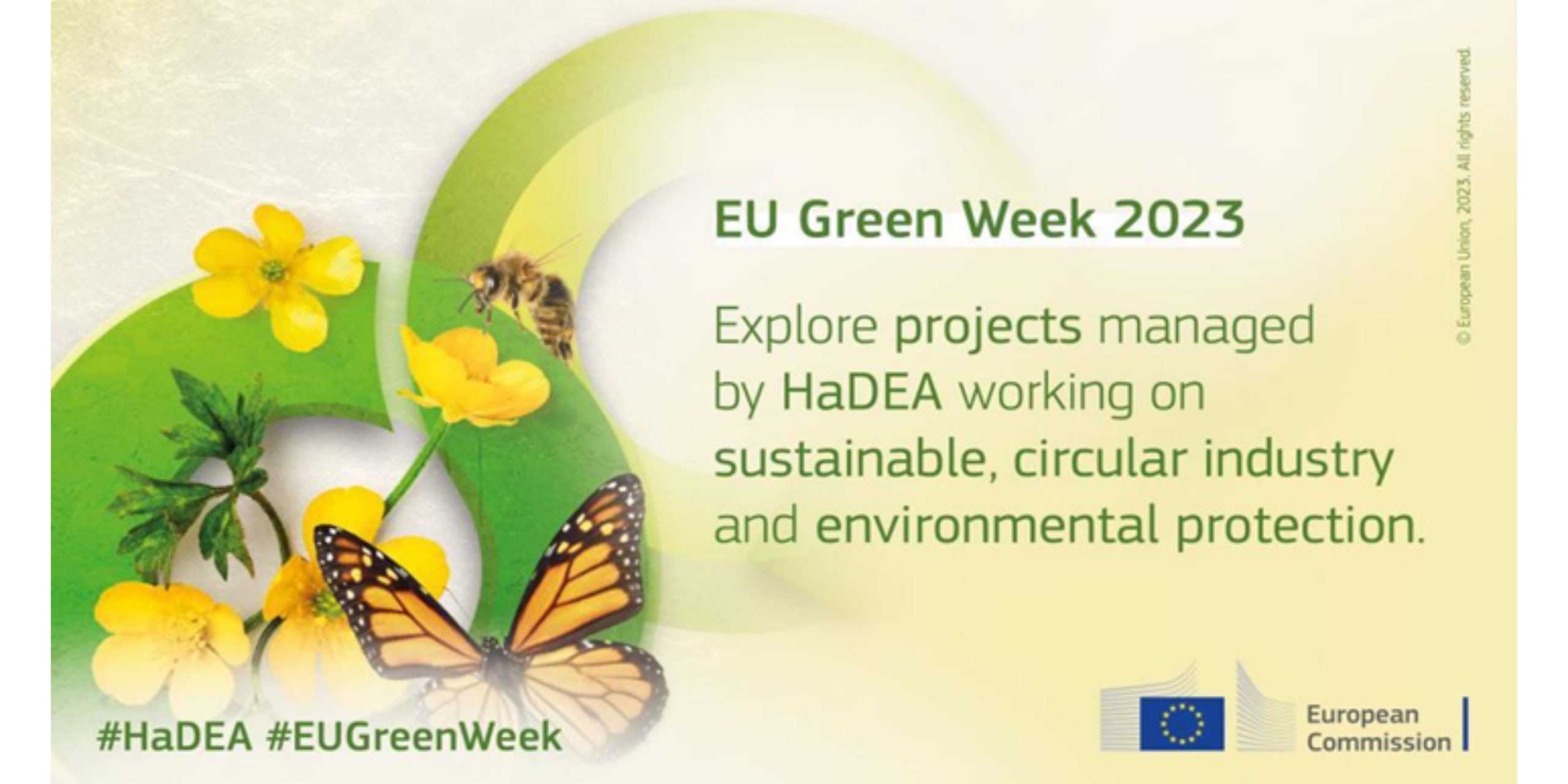The EU Green Week, taking place this year from 3 to 11 June 2023, is an annual event where policymakers, environmentalists, and stakeholders from Europe and beyond convene to discuss European environmental policies. It serves as a platform to recognise our achievements and to inspire individuals, communities and organisations to take stronger action in safeguarding and restoring our environment for present and future generations. This year’s edition centres around biodiversity, circular economy and zero pollution.
HaDEA manages EU-funded projects that have been working on environmental protection and the promotion of a sustainable and circular industry. Discover them:
FreeMe aims to replace hexavalent chromium (Cr6+) and palladium (Pd) from the Plating on Plastics (PoP) process to avoid toxic compounds and ensuring long-term sustainability. It proposes two Safe and Sustainable by Design (SSbD) approaches for the metallisation of polymeric surfaces: using sprayable resins with nickel-based precursors and a Cr6+ and Pd-free pre-treatment of the surface followed by nickel incorporation. These methods can be applied in automotive, aerospace and home appliances industries, ensuring safety and long-term sustainability.
MOZART‘s main goal is to develop high quality durable composite coatings that will allow the safe and sustainable replacement of Hard Chromium (HC), offering an environmentally less harm and less toxic alternative to the painting and coating industry, and following the SSbD principles. As a result, MOZART is designing composite coatings based on nickel matrix nano-composite electroplating processes.
NanoBat seeks to create an innovative nanotechnology toolbox for quality testing of Li-ion and advanced Lithium batteries. By using radio frequency (RF)-nanoscale techniques, NanoBat aims to surpass current testing methods, providing faster and more accurate results. This advancement has the potential to benefit battery production, contributing significantly to the clean energy and e-mobility transition.
Hubs4Circularity (H4C) are socio-technical ecosystems that foster full-scale industrial symbiosis, industrial-urban symbiosis and circular economy practices. These hubs target closing energy, resource and data loops at a regional scale, focusing on achieving climate neutrality and circularity in the industrial sector.
- H4C Europefacilitates knowledge exchange, tools and solutions inspiring innovation and promoting the H4C concept. It connects stakeholders, such as Hubs, industries, regions, policymakers and standardisation bodies, enabling them to take action through an information and knowledge platform.
- H4C ECoP’s objective is to develop the European Community of Practice (ECoP) network and an information and knowledge platform to empower stakeholders to take action, helping them overcome common challenges and facilitate the widespread adoption of circular economy models.
Background information
Horizon 2020 (H2020) was the EU’s multiannual funding programme between 2014 and 2020. H2020 provided Research and Innovation (R&I) funding for multi-national collaboration projects alongside individual researchers and SMEs via special funding instruments. Horizon 2020 was replaced by the Horizon Europe Programme, which will run until 2027.
Source: European Commission | European Health and Digital Executive Agency (HaDEA) (https://rb.gy/ggwre)
